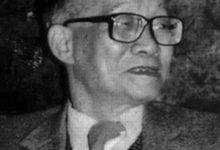In the Name of Love
“She was something desirable and rare that he had fought for and made his own―but never again an intangible whisper in the dusk, or on the breeze of night…There are all kinds of love in the world, but never the same love twice.”
I cried when I read it-the phrase stuck with me, and eventually, I found myself on the phone with Wendy Schmaltz, the agent for the Fitzgerald estate, asking if I could make the movie.
I had always been a fan of Fitzgerald, and when I read The Sensible Thing, it really struck a chord with me. It’s a story that recalls a searing moment in life for so many of us-that first love, its inevitable end, and the realization that you can never go back.
When the approval came through, I packed up my laptop and headed down the coast to San Simeon on a weekend writer’s retreat. I needed to sink into the work of Fitzgerald, to understand the characters and find ways to interpret the narrative voice as I had previously done with theatrical performance pieces, but this time through the medium of film.
Fitzgerald, at first glance, seems to embody the quintessential prep school male perspective. His work can be so easily dismissed by those who don’t fit into the “WASP” persona, but oh, what a grave mistake that would be! My explorations into his work brought me to a much different conclusion. And revealed a tragedy far deeper than the seemingly simple nostalgic story of a boy who can’t marry his sweetheart for lack of money.
San Simeon was perfect. A half-deserted windswept town on the Pacific coast, I sat outside on the deck at the Motel 6 and racked my brain to the tune of the waves crashing against the rocks. I took two pilgrimages to the famous Hearst castle, a perfect inspiration for the time period of the story, and, surprisingly, the seed of what became, for me, the underlying tragedy of the film. It had to do with money and status, and being trapped by the need to have these things.
The Sensible Thing is, ostensibly, the story of George, a young man without enough money to marry his sweetheart. She ends up breaking off the engagement, even though she loves him, because there is no promise that he can support himself, much less her. Poor guy. Well, he goes off to make his fame and fortune, returning triumphant a year later to win her back-and he does. Happy ending, right? He gets the girl. And they live happily ever after. Classic. Sweet. Simple.
Then why do we walk away feeling like this couple will never be happy?
Life is not so simple. Fairy Tales have endings, but lives keep going. The compromises and decisions George and Jonquil make along the way reveal too much about their own natures, and make a pure, innocent love impossible.
As I wrote, and even more so, as we rehearsed, it became clear to me that real tragic character in this story is not George, but Jonquil. She is the quintessential Fitzgerald woman, the sought after, the unattainable, beautiful, smart, in control. She’s got George wrapped around her little finger. Jonquil has spent a lifetime learning how to work a man, learning how to play the little games that cause men to fall in love with her. But she has done this out of necessity; because she has also learned from birth that the particular man she chooses will be the key to her success in life. She is defined by her man.
This is why George presents a problem. She falls in love with him, even though he is not wealthy, and has no status in her world. She sees something in him, a spark, a talent-something that awakens her own spirit. He’s a brilliant young engineer, and she loves this, but is also aware that it would probably take a lifetime of work to put him in the proper financial position to marry her. So she encourages him to go to New York and sell insurance, hoping he’ll quickly make his fame and fortune.
This is the fatal defining moment. George compromises his integrity to do something he hates, and he’s a miserable failure at it. Jonquil is disappointed, and without the spark he had as an engineer pursuing his passion, he becomes a lot less attractive to her as well. This makes it easier for her to finally do what her culture deems the “sensible thing,” and she sends him away. Utterly defeated, George leaves to start over again somewhere else.
But consider Jonquil… Quickly she realizes the selfishness and shortsightedness of her actions. She compromised both his integrity and her own, and now she is left to live with the reality of what she has given up. She dives back into her life of parties with the local beaux, quickly realizing how shallow and materialistic they are, and that she could not possibly love nor marry any one of them, after experiencing the true love she had with George. Yet, if she does not marry at all, what kind of life can she have? She is trapped.
And then George’s triumphant return. Redemption? Not really. He is utterly changed. The priorities that influenced her decision to send him away became imprinted on him. When he left, it was with a new found determination to succeed-not for the love of his work, but so that he could win the girl of his dreams. It’s all in the final line of the story “She was something desirable and rare that he had fought for and made his own.” Innocent love was replaced by his desire to win her, to have her, to make her his own. He has become like the other men, and it is because of her. In the new George, Jonquil recognizes the very qualities she first embraced and then disdained, and she must live forever with the guilt.
当爱已成往事
“她是多么的可爱和珍贵,是他多年所苦苦追寻的。往日朦胧而又美好的黄昏私语,还有习习夜风下的倾诉衷肠看来是不会再有了。世间的爱虽然有很多种,却没有一种可以重来。”
读到这里的时候我失声哭了出来,脑海里始终萦绕着这几句话,后来我就打电话给菲氏不动产管理机构的代理人温迪?舒玛兹,我想把这个短篇小说改编成为电影。
我一直是菲茨杰拉德的忠实读者,《理智》这个短篇小说确实引起了我极大的共鸣。它讲述的是我们许多人生命中都曾经有过的那段燃情岁月――初恋、初恋的无疾而终,以及初恋的不可重来。
在获得许可之后,我便拎着手提电脑来到了圣西蒙一个安静的海滨渡周末。我想静心地进行创作,把自己完全沉浸在故事中去,了解故事中的每一个人物,并想着如何给场景设计对白。我以前也有过戏剧表演的经验,但这回却是要拍电影。
从表面上来看,菲茨杰拉德描述的似乎只是一个预备学校男生的思想和感受。他的作品很容易被那些没有新教徒背景的人所忽略,可如果真是那样的话,那可就大错特错了。我在研究了他的作品之后得出了一个完全不同的结论:这并不是简单的一个小男生因为没钱娶不起自己心爱姑娘的老套故事,它反映了更深一层的悲剧!
圣西蒙的环境相当完美,这是太平洋沿岸一个半荒废了的小镇,常年吹拂着海风。我坐在六号汽车旅馆外面的甲板上,聆听着海浪拍打岩石的声音。我还两次前往著名的赫斯特古堡去寻找创作灵感,该建筑正好代表了小说描述时代的繁华,可是我却意外地发现,这也预示着我这部电影的悲剧根源――金钱与名利,还有在追名逐利过程中的进退两难。
从表面上来看,《理智》讲述的是一个叫乔治的年轻人的故事。因为他没有足够的钱和心上人结婚,于是她就主动解除了婚约,尽管她心里还仍然爱着他,要知道他连养活自己的能力都没有,又怎么谈得上给她幸福呢?这个可怜的年轻人。于是他就去奋斗,去追名逐利,一年之后终于功成名就地凯旋归来,还顺利地重新赢得美人的欢心。大团圆结局,对吗?从此他们就幸福地生活在一起――经典、甜蜜、简单。
可是,为什么我们会觉得他们不可能会幸福呢?
生活并不那样简单,童话故事可以有结局,可生活却依然要继续。乔治和庄乔所做的妥协和决定透露了他们的本质,也注定了他们的爱不可能单纯。
在我创作剧本,还有后来拍戏的过程中,我越来越发现真正的悲剧人物并不是乔治,而是庄乔。她是典型的菲茨杰拉德式的女主人公――艳压群芳、高不可攀、美丽、聪明、理智。乔治愿意为她做任何事情,她一生都在学习如何与男人周旋,如何耍些小把戏让男人们为她意乱情迷。她并不是因为生活所迫才这样做,而是因为她从小就明白――她必须要靠她的男人来获取成功,也就是说,她男人的成功也决定了她的成功。
乔治就给她出了一道难题,尽管他人穷位卑,她还是喜欢上了他。她发现了他的潜质,一种闪光的天赋,这种天赋同时也激荡起她的梦想。他是个很优秀的年轻技师,她爱他这一点,可是也清楚他可能需要干上一辈子才能赚到足够的金钱来娶她。于是她就鼓励他去纽约卖保险,希望他能迅速发迹。
然而这个决定却是致命的。乔治不得不昧着良心去从事他所讨厌的工作,结果自然一败涂地。庄乔由此非常失望。而乔治因为技师的天赋被埋没,身上的闪光点也渐渐被磨平,在庄乔眼里也不以前那样吸引人。因此,她做出了传统上“理智”的决定,把他打发走了,被深深挫伤的乔治只好流浪他乡继续闯荡。
可是庄乔呢?很快她就意识到自己所作所为的自私和短视。她迫使两个人都违背了自己的原则,如今她只能独自去面对现实。她重新沉迷在纸醉金迷、夜夜笙歌的生活中,但很快发现那些纨绔子弟是如此的浅薄和势利。在经历过与乔治之间的真爱之后,她不可能爱上这些纨绔子弟,更不用说要和他们共度余生。但是,如果她不结婚的话,她该怎么办呢?她陷入了进退两难的境地之中。
最后乔治衣锦还乡了。是怀着救赎的心情吗?非也,他已经彻底变了,当初庄乔因为金钱把他赶走的记忆太刻骨铭心了。当他离开的时候,出人头地的欲望前所未有地坚决――不是为了所热爱的工作,而是为了要最终赢得美人归。小说的最后一句说明了一切:“她是多么的可爱和珍贵,是他多年所苦苦追寻的。”单纯的爱不复存在,取而代之的是占有,使她成为他的附属品,这让他变得和其他男人没有什么不同,而这都是拜她所赐。在这个全新的乔治身上,庄乔发现的恰恰是她开始追求而后来鄙夷的特质,因此她一定会抱憾终生。















